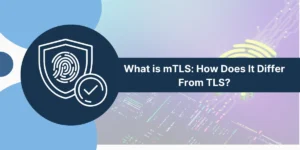The Internet has long been an environment where security plays a key role. Users transfer data, make purchases, and subscribe to services, expecting their personal information to remain safe.
One failure, and the company loses not only money but also reputation. That is why hosting providers today have a special responsibility to protect their customers.
One of the most powerful tools in the fight against digital threats is SSL certificates. They encrypt the connection between the browser and the server, preventing intruders from intercepting data.
When customers purchase dedicated server, they have the right to expect that their hosting provider will provide a reliable implementation of SSL and all the associated practices. The mere presence of a certificate is not enough. A considerable role is played by how it is installed, updated, and used in practice.
Modern users already pay attention to the lock in the address bar. Search engines lower the rating of sites without a secure connection. SSL has become not just a technical formality, but a factor of trust and a key ranking factor. In this context, the role of providers is especially significant — it depends on them how quickly and efficiently protection will be implemented.
Why SSL is the Foundation of Digital Security
SSL and its successor, TLS, provide encryption for traffic. This protects data from interception, forgery, and unauthorized access. However, just having a certificate does not mean security. Often, errors occur due to incorrect configuration, expired certificates, or the use of outdated protocols.
Providers can not only provide tools for installing SSL, but also implement practices that increase its effectiveness. This includes automatic certificate renewal, HSTS configuration, support for modern TLS versions, and prohibition of weak ciphers.
For this protection to work, you should adhere to the following recommendations:
- Regularly updating TLS protocols
- Using only trusted certification authorities
- Automatic certificate renewal
- Turning off outdated ciphers
- Configuring HSTS for sites
- Supporting SNI on servers
- Monitoring the SSL status of clients
Each of these steps increases the level of trust between the user and the site. Additionally, the provider can offer a control panel that allows the client to view the status of their certificate in real-time and receive recommendations for enhancing protection.
It is essential to simplify the installation process, including automatic scripts, integration with Let’s Encrypt, and a single activation button – all of which help clients connect protection faster. As a result, you get fewer errors, fewer requests for technical support, and a higher level of satisfaction.
How a Provider Can Influence Security
Providers play more than just the role of a technical executor. They set standards, recommend the best solutions, and form a security culture among clients. If SSL is configured correctly, it’s the hosting’s merit. If everything breaks during renewal, it’s also theirs.
A provider should not only issue a certificate but also support the client by reminding them about renewal, warning about outdated protocols, and automatically turning off unsafe configurations. Additionally, a hosting company can audit sites for SSL errors and provide personalized recommendations to address these issues.
The influence of a provider is significant at the infrastructure level. Here are the key actions that a hosting company can implement centrally:
- Informative pop-up tips
- Security audit in the client panel
- Integration with notification systems
- Easy setup of redirects to https
- Visual labels in the interface
- Regular risk newsletters
- Instructions in plain language
All these measures create a security culture where protection becomes the norm, not the exception. When a client sees that the hosting company values their data, they tend to stay longer, contact support less frequently, and recommend the service to others more often.
SSL is Just the Beginning
Although SSL is a fundamental element of protection, it must work in conjunction with other mechanisms. The provider may offer additional measures: web filters, DDoS protection, regular vulnerability scanning, and backups. However, it is SSL that remains the first barrier between the user and the attacker.
That is why it is essential not only to connect a certificate but also to build an ecosystem around it. It all starts with reliable encryption, and continues with constant work on server stability.
A provider that prioritizes the security of its clients builds a reputation, fosters loyalty, and differentiates itself from competitors. In a world where threats are growing, such advantages are especially valuable.
Final Thoughts
The digital landscape is becoming increasingly complex. Hackers use automated scripts, attacks are becoming more targeted, and users expect absolute protection. In this reality, SSL is not an option, but a necessity. But even the best certificate is meaningless without proper implementation.
When companies purchase a dedicated server, they expect more than just a machine. They want a partner who will provide resilience, speed, and security. Proper implementation of SSL is the first step to achieving that trust.

Priya Mervana
 Verified Web Security Experts
Verified Web Security Experts
Priya Mervana is working at SSLInsights.com as a web security expert with over 10 years of experience writing about encryption, SSL certificates, and online privacy. She aims to make complex security topics easily understandable for everyday internet users.



